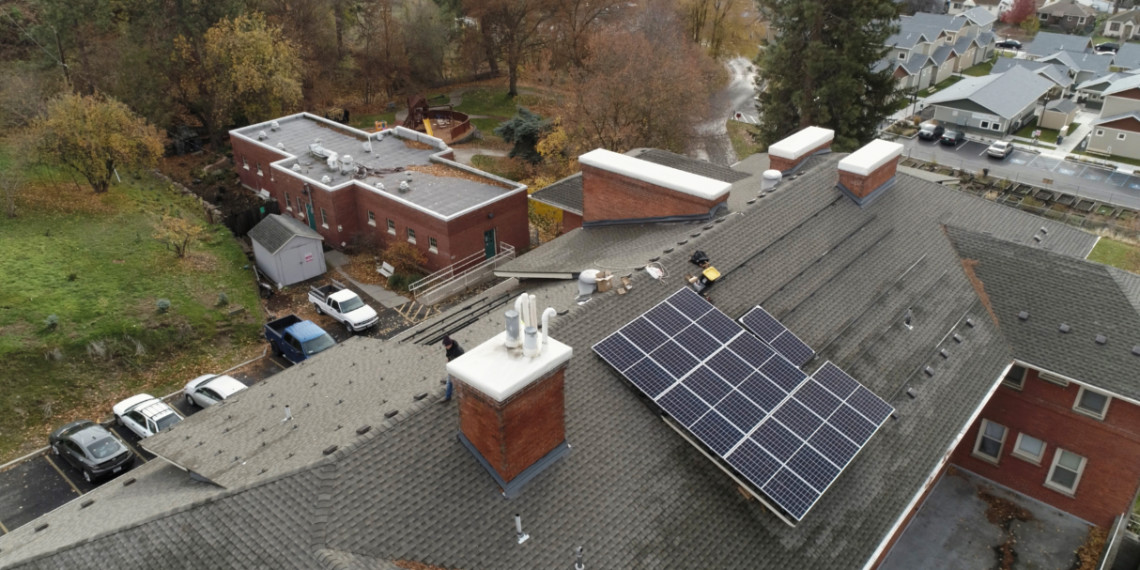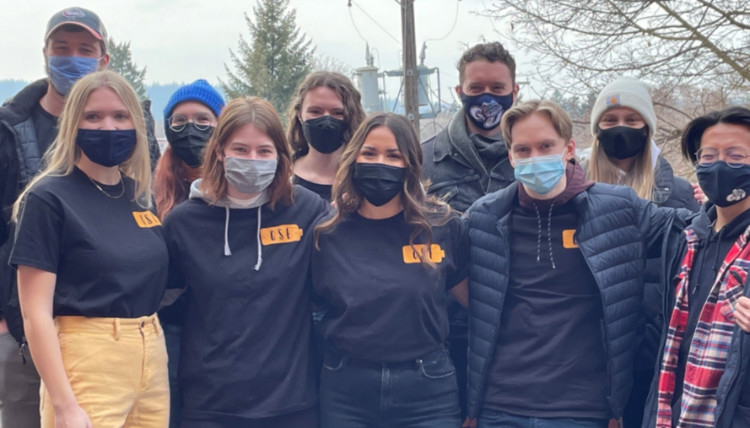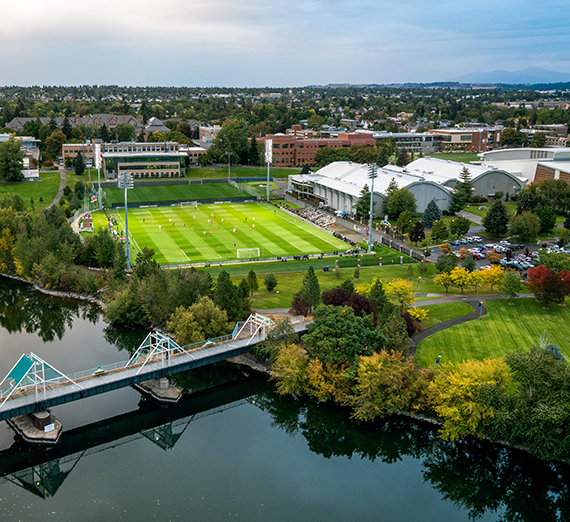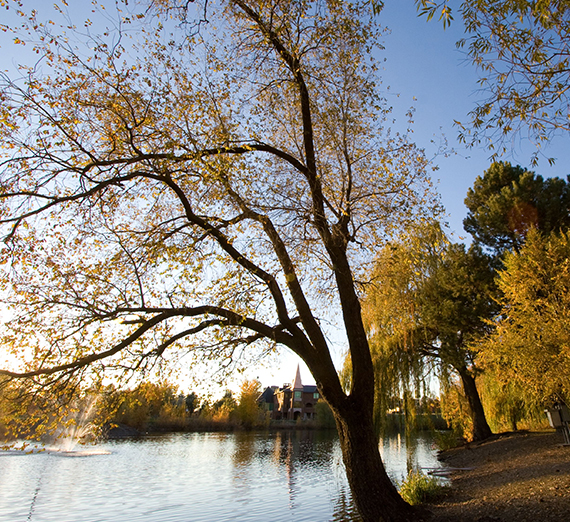Celebrating Two Student-Centered Sustainability Projects

SPOKANE, Wash. – Two student-centered, environmentally focused projects will help lower energy costs and carbon footprints in Spokane.
The ribbon-cutting ceremony for newly installed solar panels at Transitions, a Spokane nonprofit supporting women and children experiencing homelessness, took place on Jan. 29, while the Gonzaga Center for Climate, Society and the Environment launched a window-weatherization program for students in the Logan Neighborhood.
The ceremony celebrating Transitions’ new solar panels was at 1 p.m. Saturday after a year and a half of student efforts led by the Gonzaga Sustainable Energy Club (GSE). The solar panels will save the nonprofit an estimated $116,000 over the course of their 20-year lifespan according to Gonzaga senior civil engineering student Jess Vazquez.
The student team partnered with RE-volv, a nonprofit that finances community solar energy projects, through its solar ambassador program.

Left to right: Hayden Saalfield, Helena Laan, A. Borbridge, Theopania Labay, Sarah Frisby, Jessica "Jess" Vazquez, Owen McKinstry, Nathan Coats, Alex Palmatier and Mark Pham
The student group saw it as an opportunity to improve energy equity.
“Solar is pretty isolated to those who can afford that big upfront cost … now we’re able to help those that don’t usually get that help,” said Vazquez.
Nonprofits have limited funding for new technology like solar panels.
“They can take their savings and reinvest that into the community,” said Sarah Frisby, senior civil engineering student.
Energy-cost savings will allow Transitions to direct more funding toward its mission of ending poverty and homelessness for Spokane women and children.
On campus, the Gonzaga Center for Climate, Society and the Environment provided window-weatherization kits for 156 windows to students in a pilot project designed to save money and reduce energy consumption in the Logan Neighborhood.
Program coordinator Karli Honebein posed the questions that inspired the project: “What can the Climate Center do to make a tangible impact in our community? What can we do to support our community to take real, tangible steps?”
Many rental units in the Logan neighborhood have minimal insulation, old furnaces and single pane windows, which leads to high energy usage and electricity bills, Honebein said. The kits have the potential to reduce a utility bill up to 25%.
The team hopes to expand to residents outside the Gonzaga community after evaluating the pilot’s success this spring.
- Service & Community Impact
- Sustainability
- School of Engineering & Applied Sciences
- Office of Sustainability
- Environmental Studies
- Electrical Engineering




